Papers by Stella Hutagalung

The Asia Pacific Journal of Anthropology, 2016
Kupang, the capital city of Nusa Tenggara Timur (NTT/East Nusa Tenggara) province, is a majority ... more Kupang, the capital city of Nusa Tenggara Timur (NTT/East Nusa Tenggara) province, is a majority Christian community in predominantly Muslim Indonesia. Despite widespread inter-religious violence in Indonesia, especially around the fall of the Suharto regime in 1998, Muslim–Christian relations in Kupang have, to date, been relatively harmonious. Minor incidents occurred in 1998 and tensions were exacerbated by the construction of a new mosque at Batuplat village in 2011, but these did not lead to larger conflicts. Drawing on observations in three urban neighbourhoods (Kampung Solor, Airmata and Oesapa), this article discusses the experiences of Muslims in these urban neighbourhoods in negotiating space for their religious practices and maintaining peace with their Christian neighbours. This ethnographic study allows us to understand factors underpinning inter-religious harmony in Kupang.
papers have been written by the SPA research partners to provide relevant background information ... more papers have been written by the SPA research partners to provide relevant background information for readers unfamiliar with the area being researched. They include the context- political, economic and social environment, the institutional and policy context – and the preliminary research findings of the project. Please also see the summaries of each working paper for a quick overview. The opinions expressed in the papers are those of the authors and do not necessarily reflect the views of any of the institutions involved.

This study explores the qualitative data on why some Indonesians do not use basic maternal and ch... more This study explores the qualitative data on why some Indonesians do not use basic maternal and child health services and why some Indonesians do not send their children to primary or junior high schools, which will serve as a baseline for future PNPM Generasi (Program Nasional Pemberdayaan Masyarakat Generasi Sehat dan Cerdas) and PKH (Program Keluarga Harapan) evaluations. Based on results of focus group discussions (FGDs), in-depth interviews, and direct observations conducted in West Java and Nusa Tenggara Timur (NTT), the study finds that physical access limitations and isolation, economic access limitations, and the belief in the traditional custom are the main reasons why some community members do not use modern mother and child health services for pre and postnatal monitoring or for delivery. Problems related to physical access and financial access are also the main reasons for attrition and why some parents do not send their children to junior high school.
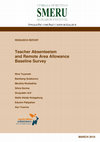
Efforts to provide basic education services in Indonesia still face various problems, such as the... more Efforts to provide basic education services in Indonesia still face various problems, such as the uneven spread of education facilities, teacher shortages, and poor quality teachers. The nature of Indonesia's geography also creates difficulties in attempting to provide basic education services. Many remote areas have limited access to progress and developments in the education sector, and have difficulties obtaining teachers. To attract the interest of teachers and retain current teachers, the government supplied a special allowance for teachers in remote areas, including teachers in poor or conflict-affected areas. The subsidy is the equivalent of one month's wage, or up to Rp1.35 million. Teachers were eligible to receive the allowance if they had been working in the school for a minimum of two years and worked at least 24 hours per week. i For the teaching year of 2007/08, the remote area allowance was to be given to 20,000 teachers in primary schools in 199 kabupaten. The effectiveness of the remote area allowance program can be assessed by examining the influence it has had on the absentee levels of teachers who teach in remote area allowance recipient schools. The key question to consider is: Is the absentee level for teachers who receive the allowance lower than the absentee level for teachers who do not receive the allowance? To answer this question in 2008 The SMERU Research Institute conducted a teacher absentee survey, similar to that conducted by The SMERU Research Institute in 2003. This survey will also seek to update the 2003 absenteeism figure, and investigate other information including how the remote area allowance program is operating, student absentee levels in primary schools, and grade four students' skills in mathematics and Indonesian.
and (again) Andrey Damaledo and their families; friends at Canberunners who have introduced me to... more and (again) Andrey Damaledo and their families; friends at Canberunners who have introduced me to running, which becomes my favorite sport today; friends at PMKIC (Indonesian Christian Community in Canberra); Lin Zhao and her family; and all other friends that I cannot mentioned one by one. I would like to thank my former colleagues at The Asia Foundation Jakarta, especially
Page 1. The findings, views, and interpretations published in this report are those of the author... more Page 1. The findings, views, and interpretations published in this report are those of the authors and should not be attributed to the SMERU Research Institute or any of the agencies providing financial support to SMERU. For ...
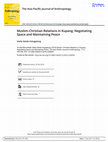
Kupang, the capital city of Nusa Tenggara Timur (NTT/ East Nusa Tenggara) province, is a majority... more Kupang, the capital city of Nusa Tenggara Timur (NTT/ East Nusa Tenggara) province, is a majority Christian community in predominantly Muslim Indonesia. Despite widespread inter-religious violence in Indonesia, especially around the fall of the Suharto regime in 1998, Muslim-Christian relations in Kupang have to date been relatively harmonious. Minor incidents occurred in 1998 and tensions were exacerbated by the construction of a new mosque at Batuplat village in 2011, but these did not lead to larger conflicts. Drawing on observations in three urban neighbourhoods (Kampung Solor, Airmata and Oesapa), this article discusses the experiences of Muslims in these urban neighbourhoods in negotiating space for their religious practices and maintaining peace with their Christian neighbours. This ethnographic study allows us to understand factors underpinning inter-religious harmony in Kupang.
Keywords: Kupang; Inter-religious relations; Inter-communal network; Civic engagement; Indonesia
These papers have been written by the SPA research partners to provide relevant background inform... more These papers have been written by the SPA research partners to provide relevant background information for readers unfamiliar with the area being researched. They include the context -political, economic and social environment, the institutional and policy context -and the preliminary research findings of the project. Please also see the summaries of each working paper for a quick overview.
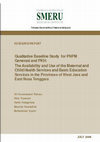
This study explores the qualitative data on why some Indonesians do not use basic maternal and ch... more This study explores the qualitative data on why some Indonesians do not use basic maternal and child health services and why some Indonesians do not send their children to primary or junior high schools, which will serve as a baseline for future PNPM Generasi (Program Nasional Pemberdayaan Masyarakat Generasi Sehat dan Cerdas) and PKH (Program Keluarga Harapan) evaluations. Based on results of FGDs, in-depth interviews, and direct observations conducted in West Java and NTT, the study finds that physical access limitations and isolation, economic access limitations, and the belief in the traditional custom are the main reasons why some community members do not use modern mother and child health services for pre-and postnatal monitoring or for delivery. Problems related to physical access and financial access are also the main reasons for attrition and why some parents do not send their children to junior high school.
These papers have been written by the SPA research partners to provide relevant background inform... more These papers have been written by the SPA research partners to provide relevant background information for readers unfamiliar with the area being researched. They include the context -political, economic and social environment, the institutional and policy context -and the preliminary research findings of the project. Please also see the summaries of each working paper for a quick overview.



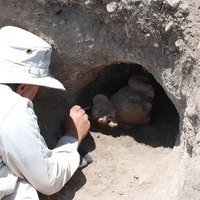

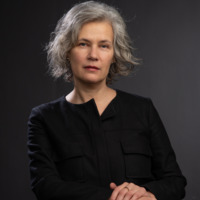
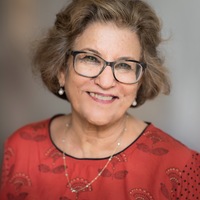




Uploads
Papers by Stella Hutagalung
Keywords: Kupang; Inter-religious relations; Inter-communal network; Civic engagement; Indonesia
Keywords: Kupang; Inter-religious relations; Inter-communal network; Civic engagement; Indonesia